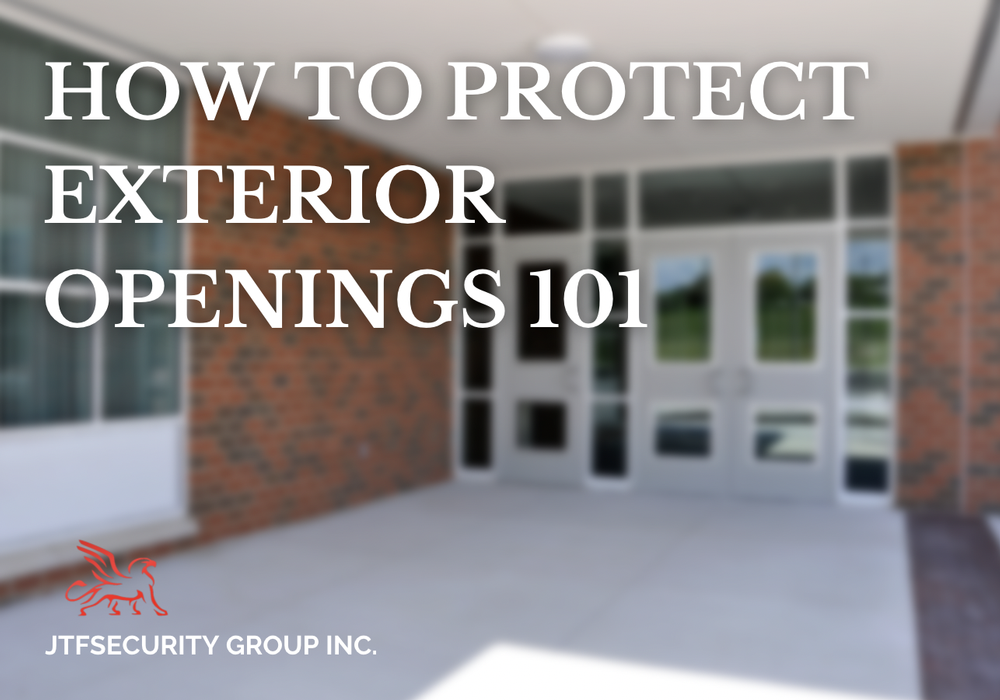How to Protect Exterior Openings 101

Security professionals are always preparing for the next what if …
In a climate where emotions are raw and people feel an urge to express their frustrations en masse in public and physical ways, it is crucial for schools, government buildings, retail outlets, healthcare facilities, corporate campuses and more to maintain a high-level of physical security, thereby protecting human life, infrastructure critical to operations and valuable inventory.
From government buildings to retailers to pharmacies, security personnel and other responding parties must be able to quickly close off building envelopes to keep people and property safe.
Here are few ideals for protecting exterior openings, and assessing the level of security required.
Consider security from all angles
Most doors around building perimeters are designed to prevent entry from unauthorized individuals, but not an attack by multiple assailants. However, there are several commercial rolling door options and levels of protection available for this.
Rolling security grilles can act as both a visual and physical deterrent for exterior openings, protect interior openings, or control access from authorized to unauthorized areas of the building. They fit in small head spaces where there is limited room in the plenum, and they can be easily concealed when not in use or deployed quickly in the event of an emergency. Some rolling grilles are available with emergency egress options to protect occupants during a fire event.
Manufacturers offer durable stainless-steel or aluminium curtains in a variety of patterns and finishes for applications that require grilles to be robust, yet aesthetically pleasing. Depending on the level of security needed, rolling grilles may also be an ideal solution for counters, retail displays or access control inside a building.
Consider the location of the building, the presence of security staff, the safety of occupants, the value of the contents, and then determine the level of closure security you need.
High-value targets
Depending on the level of security required, a standard rolling steel door can be configured to provide a high level of security against unauthorised individuals, and with the addition of special options it can protect against multiple random attackers, as well as organised attackers with tools for various durations of time. Rolling steel doors provide both a visual deterrent and an exceptionally strong obstacle to entry. Robust doors, with heavy-duty steel curtains feature interlocking slats that create a smooth, flat surface, reducing pry points and making them virtually impenetrable.
Most of the doors on the market are lift and impact resistant. Some options have heavy-duty bottom bars that prevent doors from being pried open. Other doors have been tested to meet Standard for forced entry.
Additional security enhancement features
Rolling security doors are custom made for specific openings and buildings, and features are configurable for each project. For example:
- To protect against the threat of smoke or toxic gasses that may be deployed during a riot, consider a rolling security door that is tested for air and smoke infiltration. These doors have been third-party tested to withstand smoke penetration, keeping occupants safe while they move to a tenable space.
- Automatic closing systems that can be paired with a building’s rolling doors, are immediately activated by a building alarm or the push of a panic button. This gives building occupants a sense of safety in a quickly evolving emergency situation.
- A motor operator with battery back-up will ensure that the security door will close completely, even with the interruption of power to the building.
- Application systems from the manufacturer can enable users to monitor the doors from a computer or smartphone. Owners and security personnel may monitor door position, limit access or control the doors remotely according to their security needs.
Security grilles and heavy-duty rolling doors are fairly easy to install, can be aesthetically pleasing and, most importantly, provide much needed protection to building occupants and goods during uncertain times.